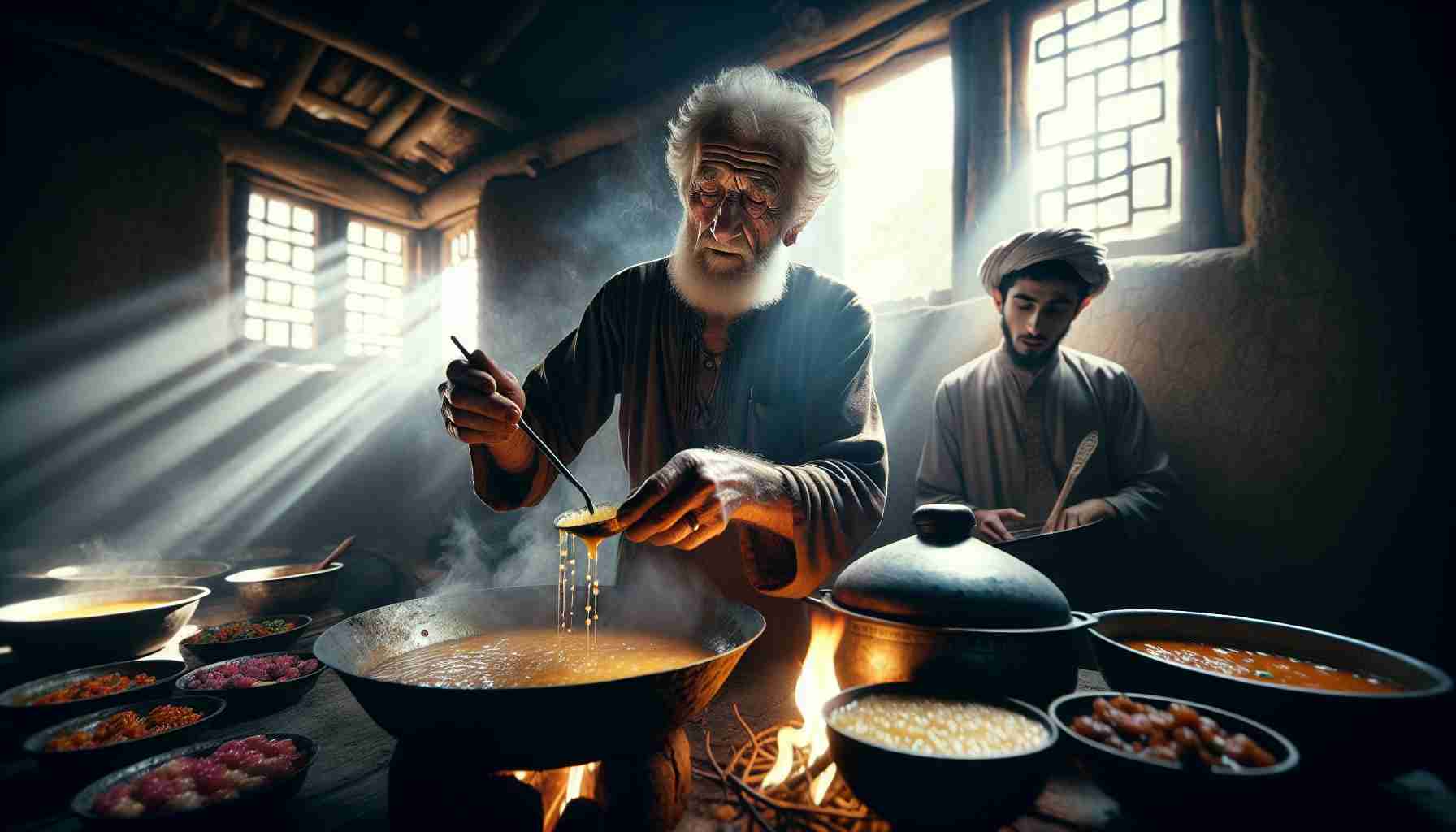

The fire in the kitchen crackled softly as I stirred the soup. My name is Jin, and I was once a very proud chef in a rich lord’s palace. I believed that cooking was like a battle—you had to fight with the ingredients, force the taste, and grab your place at the top. But that changed when I met an old cook named Bo the Quiet.
Bo wasn’t tall or strong. He wore simple clothes, and his hands were rough from years of work. When the lord brought him in to help during a great feast, I felt insulted. What could this quiet old man cook that I couldn’t?
“Let him stir the porridge,” I said, thinking it would show how slow he was.
But as I watched him, I noticed something strange. He didn’t rush, didn’t force anything. He poured the water like pouring moonlight into a bowl. He chopped the vegetables as if he was playing music. Every piece just fell into place.
“Why are you so slow?” I asked. “The guests are waiting!”
Bo smiled gently. “The guests will eat when the food is ready. Rushing won’t make flavors dance any faster.”
I huffed and turned back to my frying pan, tossing the meat and splashing sauces louder than I needed to.
That night, the palace filled with the smell of roasted duck, lotus soup, and spicy tofu. My dishes were bold and bright—but it was one small bowl of Bo’s porridge that everyone kept returning to. Even the lord asked for more.
I was angry. “Porridge!” I grumbled. “Plain old porridge?”
Bo sat beside me at the fire, watching the flames. “Do you know why the porridge was good?” he asked.
I didn’t answer.
“I didn’t cook it,” he said. “I let it become what it wanted to be. The water knew how to soften the rice. The heat knew when to rise and fall. My job was to step aside.”
I blinked. “But that’s nothing. You didn’t do anything!”
He smiled. “Doing less—when done in the right time—is often doing more.”
That night, I lay in my bed and stared at the ceiling. I thought about how I always tried to control everything: the food, the fire, even the people around me. But Bo hadn’t tried at all. He had trusted nature. He had followed the Tao—the Way.
The next day, I watched the water boil and the oil sizzle. I didn’t force anything. I listened—not with my ears, but with my heart. Slowly, cooking didn’t feel like a fight. It felt like a song.
Over time, I changed. I no longer shouted at the fire or scolded the meat. I let things be as they were. My kitchen became quiet—but full of peace.
That was many years ago. Bo is gone now, but I still share his secret recipe. It’s not about spice or skill.
It’s about balance.
It’s about stillness.
It’s about cooking—not to impress—but to listen.
And perhaps... to be free.
The fire in the kitchen crackled softly as I stirred the soup. My name is Jin, and I was once a very proud chef in a rich lord’s palace. I believed that cooking was like a battle—you had to fight with the ingredients, force the taste, and grab your place at the top. But that changed when I met an old cook named Bo the Quiet.
Bo wasn’t tall or strong. He wore simple clothes, and his hands were rough from years of work. When the lord brought him in to help during a great feast, I felt insulted. What could this quiet old man cook that I couldn’t?
“Let him stir the porridge,” I said, thinking it would show how slow he was.
But as I watched him, I noticed something strange. He didn’t rush, didn’t force anything. He poured the water like pouring moonlight into a bowl. He chopped the vegetables as if he was playing music. Every piece just fell into place.
“Why are you so slow?” I asked. “The guests are waiting!”
Bo smiled gently. “The guests will eat when the food is ready. Rushing won’t make flavors dance any faster.”
I huffed and turned back to my frying pan, tossing the meat and splashing sauces louder than I needed to.
That night, the palace filled with the smell of roasted duck, lotus soup, and spicy tofu. My dishes were bold and bright—but it was one small bowl of Bo’s porridge that everyone kept returning to. Even the lord asked for more.
I was angry. “Porridge!” I grumbled. “Plain old porridge?”
Bo sat beside me at the fire, watching the flames. “Do you know why the porridge was good?” he asked.
I didn’t answer.
“I didn’t cook it,” he said. “I let it become what it wanted to be. The water knew how to soften the rice. The heat knew when to rise and fall. My job was to step aside.”
I blinked. “But that’s nothing. You didn’t do anything!”
He smiled. “Doing less—when done in the right time—is often doing more.”
That night, I lay in my bed and stared at the ceiling. I thought about how I always tried to control everything: the food, the fire, even the people around me. But Bo hadn’t tried at all. He had trusted nature. He had followed the Tao—the Way.
The next day, I watched the water boil and the oil sizzle. I didn’t force anything. I listened—not with my ears, but with my heart. Slowly, cooking didn’t feel like a fight. It felt like a song.
Over time, I changed. I no longer shouted at the fire or scolded the meat. I let things be as they were. My kitchen became quiet—but full of peace.
That was many years ago. Bo is gone now, but I still share his secret recipe. It’s not about spice or skill.
It’s about balance.
It’s about stillness.
It’s about cooking—not to impress—but to listen.
And perhaps... to be free.